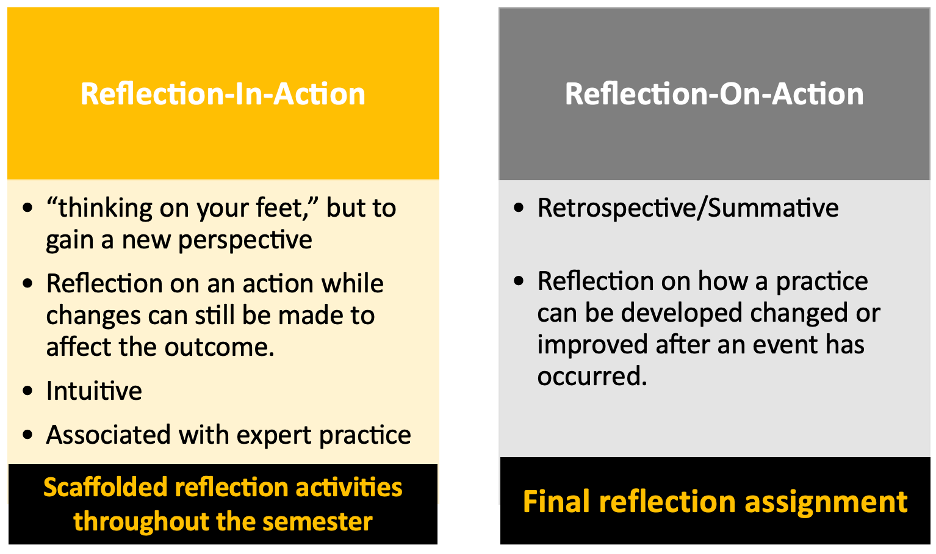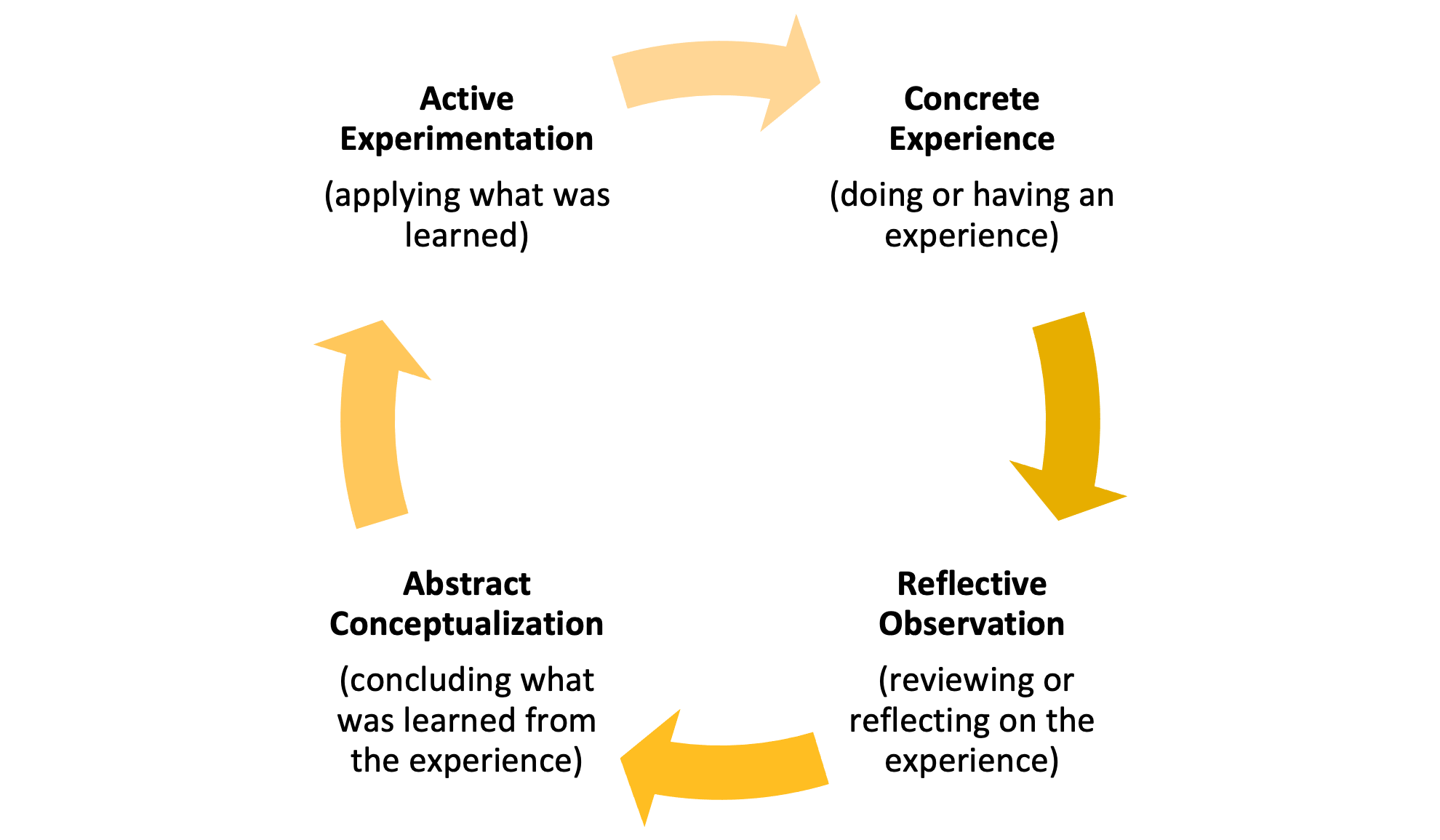What is Reflection?
by Michelle Head, CETL Scholarly Teaching Fellow for Reflective Practices
This article is part of the larger, Reflective Practices for Teaching.
Among the first to define the act of reflection was John Dewey. He describes reflection as an "active, persistent, and careful consideration of any belief or supposed form of knowledge in the light of the grounds that support it and the further conclusions to which it tends.” He continues by stating, "Reflection involves not simply a sequence of ideas, but a consequence — a consecutive ordering in such a way that each determines the next as its proper outcome, while each in turn leans back on its predecessors. The successive portions of the reflective thought grow out of one another and support one another; they do not come and go in a medley. Each phase is a step from something to something — technically speaking, it is a term of thought. Each term leaves a deposit which is utilized in the next term. The stream or flow becomes a train, chain, or thread.”
Donald Schön, an American philosopher, describes, “Reflection as the element that turns an experience into learning.” He differentiates between two types of learning, reflection-in-action, and reflection-on-action. As practitioners, we can support reflection-in-action through scaffolded ongoing reflection activities throughout the semester, while reflection-on-action may be supported by looking back over an entire experience and composing a final reflection assignment.

David Kolb argues that reflection is a necessary component to make sense of a learning experience. This is presented in Kolb’s Experiential Learning Cycle.

References
Dewey, J. (1933). How we think: A restatement of the relation of reflective thinking to the educative process. New York, NY: D. C. Heath.
Kolb, D. (1984). Experiential learning: Experience as the source of learning and development. Englewood Cliffs, N.J.: Prentice-Hall.
Schön, D. (1983). The Reflective Practitioner: How professionals think in action. London: Temple Smith
Back to Reflective Practices











